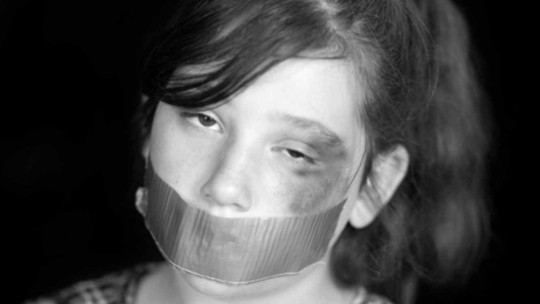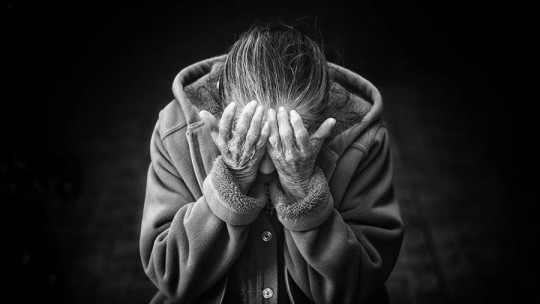
Domestic violence is currently one of the biggest social problems, and in response to this, Psychology has been developing lines of research to understand how these situations based on physical or emotional attacks come to exist. In this sense, it has been concluded that a good part of these violent dynamics have a gender component, and that in this area, violence carried out by men is of special importance given that the capacity to do a lot of damage or even endangering your partner’s life is greater.
Therefore, in this article we will focus on reviewing the main characteristics of abusive men ; traits that, although they do not have to be present in all individuals who commit acts of this type, generally tend to exist in the way the majority of perpetrators behave.
Main characteristics of the abusive man
Abusers can have very diverse personalities, but they usually present a very specific profile that allows them to be identified more easily and offers potential victims the possibility of avoiding them and avoiding a relationship based on abuse and toxicity.
If you want to know in depth the signs that characterize this type of behavior, keep reading. Below we present the main characteristics of abusive men, as a brief guide with which to detect warning signs in a relationship.
1. Low self-esteem
Low self-esteem is one of the main basic characteristics that abusive men have, and usually This toxic behavior is carried out as an attempt to make up for or cover their personal shortcomings and deficits
In general, people who solve their problems through violence usually have low levels of self-esteem and generally tend to have a bad image of themselves in any aspect of their person.
That is why abusers end up using their partners to increase their self-esteem, exercising dominance and both physical and psychological abuse towards the other person, which makes them feel superior.
2. Jealousy
Jealousy is usually another very common psychological manifestation and related to the low self-esteem of people who abuse their partners.
This jealousy can be based on very diverse behaviors, but it almost always results in the abuser becoming obsessed with non-existent infidelities and controlling his or her partner at all times for fear of being deceived.
Jealousy is a toxic addition to an already toxic relationship based on abuse, both physical and psychological.
3. Promotion of emotional dependence
Another characteristic of abusive men is their predisposition to try to make the victim internalize ways of thinking linked to emotional dependence. In this way, they give “reminders” that the world outside that relationship is hostile and that it is not worth even considering breaking up.
4. Use of gender stereotypes to generate guilt
Abusive men They use sexist stereotypes and expectations linked to gender roles to their advantage Thus, for example, they will associate any behavior that generates jealousy with promiscuity, using “slut shaming” and all the negative connotations linked to the expression of a woman’s sexuality.
5. Insecurities projected towards others
Insecurity is, again, a characteristic related to low self-esteem and the abuser’s emotional dependence on his or her partner. It is reflected in the tendency to project onto others what they themselves recognize in themselves and consider weaknesses.
There are many sources of insecurity in abusers, and these can be, for example, believing that their wife will abandon them, considering that they are not man enough, that they do not measure up, that they are not intelligent enough or capable of doing anything at all. particular.
6. Deficits in social skills
Social skills are those that allow us to communicate successfully with the environment that surrounds us, with society and especially with those closest to us: friends, family, co-workers or partners.
Men who abuse their partners also present real deficits in these social skills, at least with regard to the creation of stable and lasting bonds (in some cases they do turn out to be charismatic during the first conversations), and among the most common in this group are active listening, assertiveness, negotiation skills and emotional intelligence, among others.
7. Tendency to promote social isolation
Abusers also tend to progressively isolate themselves and make their victims gradually stop seeing their closest friends and family, to cut any external ties they may have.
The lack of social skills, mistrust and low self-esteem are essential elements that cause abusers to be unable to establish deep personal relationships with other people, hence the permanent isolation they experience from society.
8. Low tolerance for frustration
A person who is not capable of interacting normally with his environment and does not know face their problems more than with violence also have a low tolerance for frustration and failures.
This frustration over failing or things not going as planned is usually paid for by abusing their partners, who are habitual victims of their abuser’s problems.
9. Repression of emotions linked to the feminine
Abusive men often have a biased and distorted view of masculinity, which is why they typically believe that men should not express their feelings or seek help when they have mental health problems.
This systematic repression of everything that worries them, scares them, hurts them or frustrates them generally ends up channeling into outbreaks of violence towards their partner.
10. Attempts at constant emotional manipulation
Abusers are habitually controlling; They do not always exercise power through direct confrontation, sometimes put the victim in a position where they doubt their own mental faculties, as occurs when using a technique called “gaslighting.” In the same way, they try to make the other person feel guilty for fictitious grievances, which do not really exist.
That is, in addition to controlling everything their partners do at all times, they also manipulate them to do what they believe through emotional blackmail and other strategies typical of toxic people.
11. Lack of skills to resolve conflicts assertively
Assertiveness is the ability to communicate one’s feelings, emotions, preferences or approaches to other people, always respecting the position and integrity of the interlocutor.
Abusers mostly lack this ability, and They tend to be inflexible and intransigent when negotiating with other people especially with their partners.
There is also a notable deficit in conflict resolution skills in abusers, something that is seen whenever there is a problem, setback or failure of any kind.
Abusers generally resolve conflicts through violence or deception to avoid having to put themselves in the other person’s shoes.
Are you looking for psychological assistance?
If you want to have the support of a team of psychology professionals, contact us.
In Cepsim Psychological Center We can help you in any of our centers distributed throughout Madrid or through online therapy sessions.








